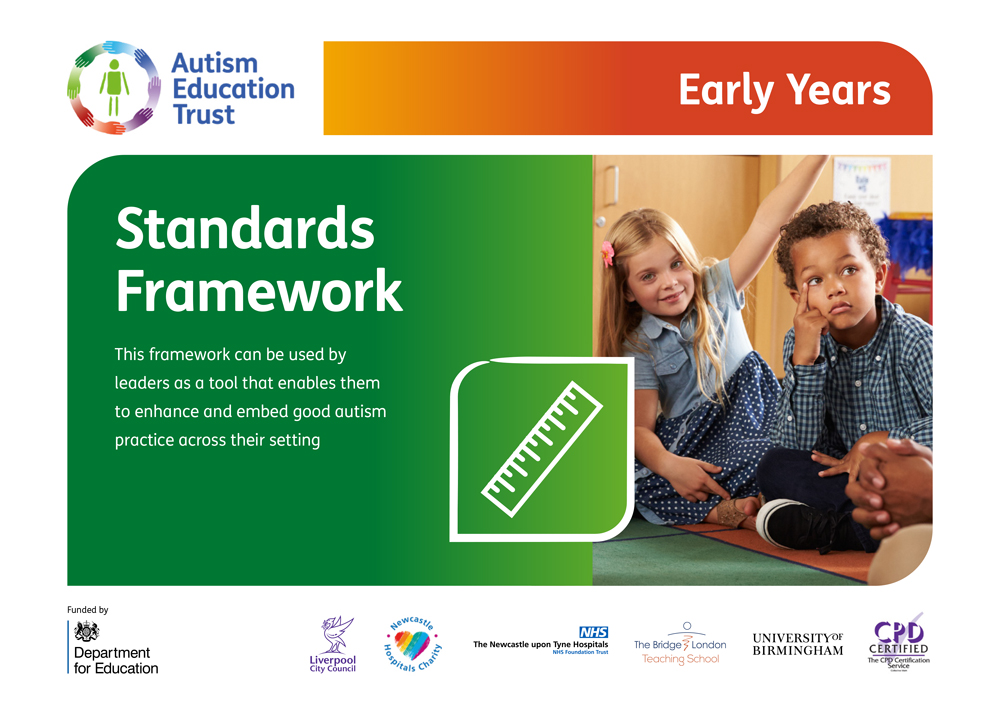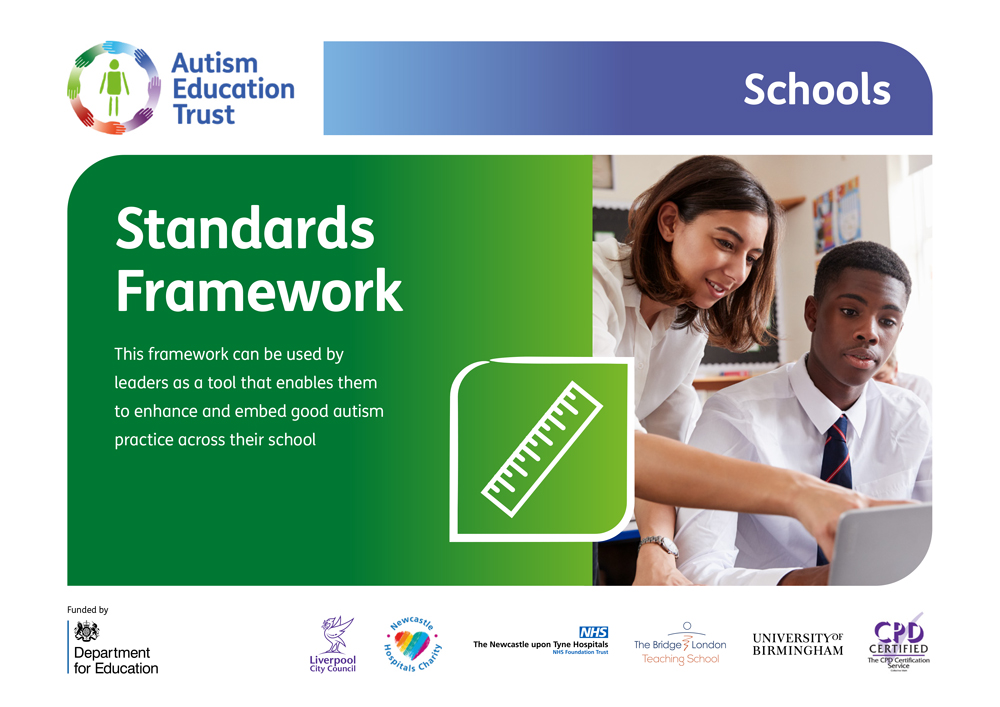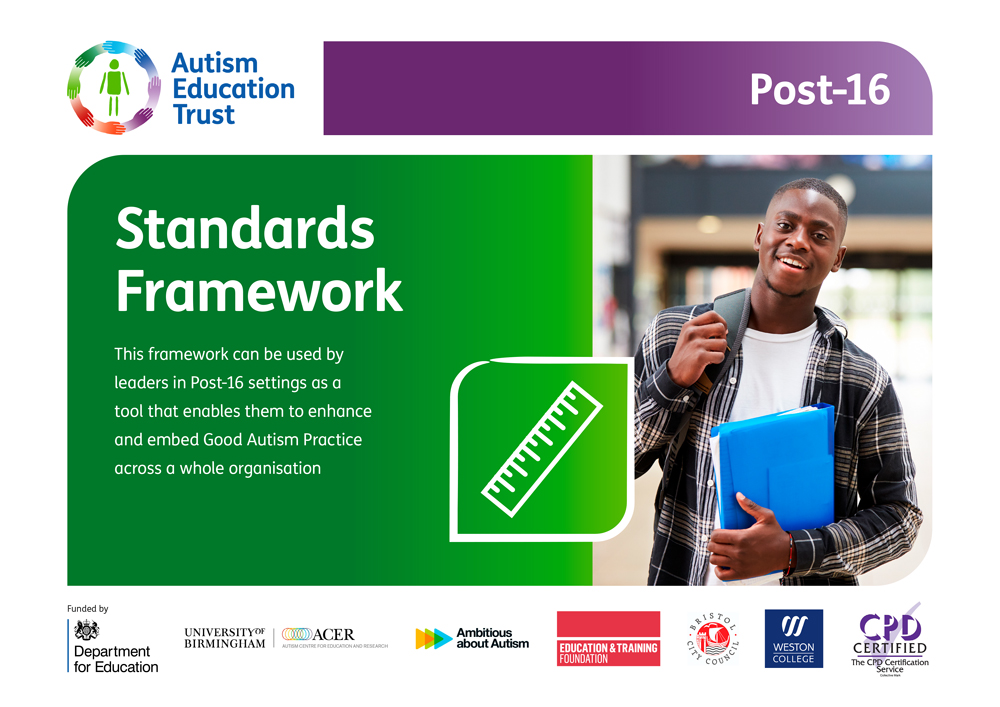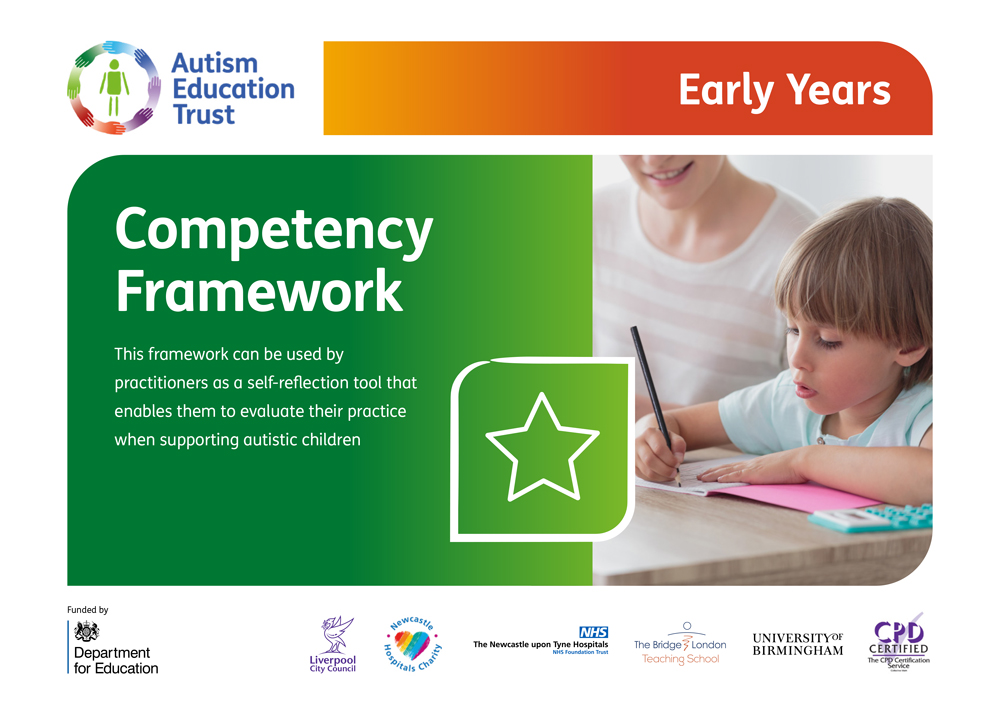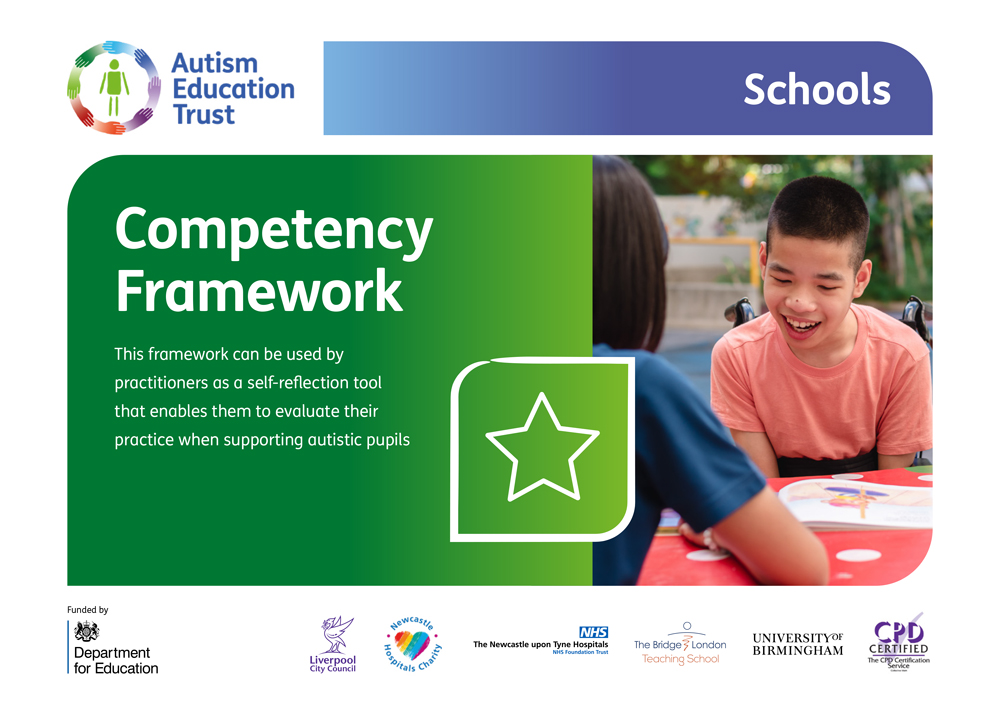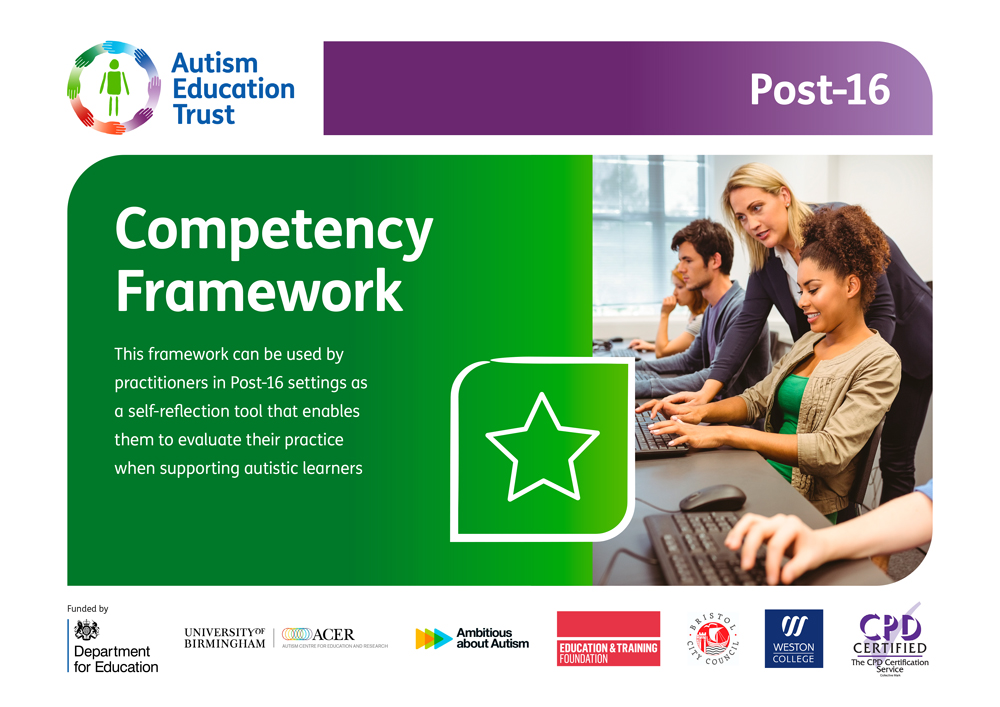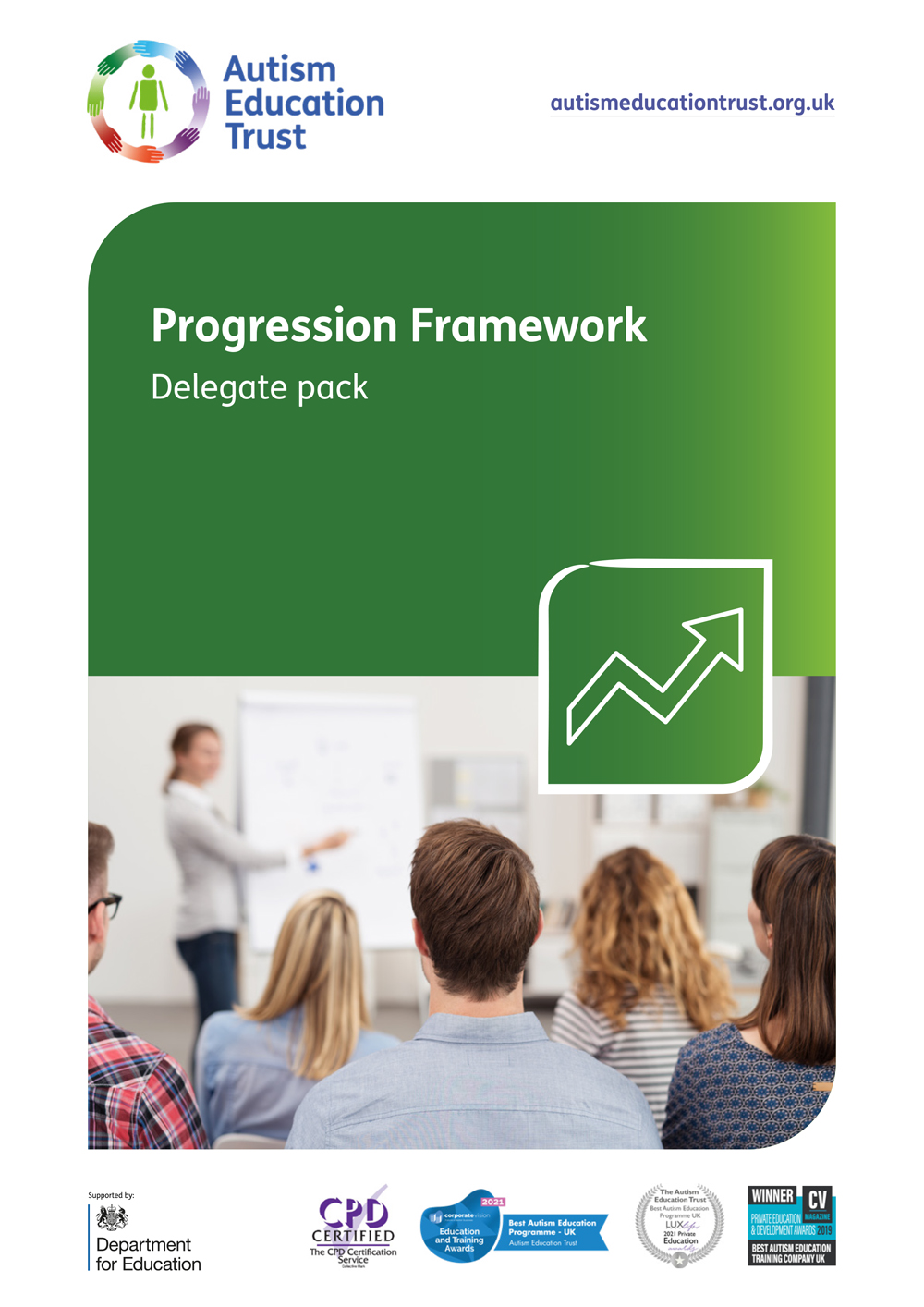The Framework Documents
Alongside the training programmes are three framework documents:
The Standards Framework 
The Standards Frameworks can be used by leaders to enhance and embed inclusive practice and improve outcomes for autistic pupils. The frameworks can be used by leaders across a range of provisions from mainstream to specialist to support settings to reflect, plan and implement improvement processes.
By using the Autism Education Trust (AET) Standards Frameworks, leaders and leadership teams can:
- Identify priority areas to work on.
- Create an action plan to improve setting wide practices.
- Implement reasonable adjustments for autistic pupils.
- Improve the engagement, retention, and academic achievement of autistic pupils.
- Monitor practice and provide evidence of embedding good autism practice.
These standards support School Leaders to meet the special educational needs and disabilities (SEND) policy and legal requirements and their equality duties whilst complying with the Ofsted Education Inspection Framework (2021) and the Teacher Standards (2011). They also align with the Head Teacher Standards (2020).
The Competency Framework 
The Competency Framework can be used by staff in education settings (5-16) across a range of Settings from mainstream to specialist as an ongoing self-reflection tool to help them.
- Self-assess their skills and competencies.
- Decide which aspects of their practice require further development.
- Identify priority areas to work on.
- Consider their professional development needs.
- Seek appropriate professional development.
These competencies support EYS staff/practitioners in meeting Special Educational Needs and Disabilities (SEND) policy and legal requirements and their equality duties whilst complying with the Ofsted Education Inspection Framework (2021) and the Teacher Standards (2011).
The Progression Framework 
This is an interactive assessment tool that helps practitioners identify learning priorities, set key learning intentions and track progress for autistic pupils and young people in both mainstream and specialist educational provisions.
